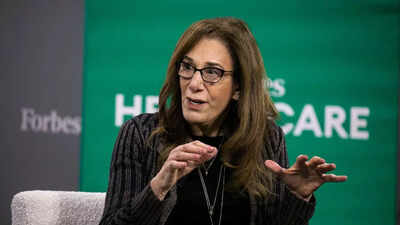Judy Faulkner, the 82-year-old CEO of Epic Systems, has built a remarkable $7.8 billion fortune through her 43% stake in the company, yet she has never taken a single share for personal use. Instead, she has committed to giving away nearly all her wealth to philanthropic causes, signing Bill Gates’ Giving Pledge in 2015 to donate 99% of her fortune. Beyond finances, faulkner has created a corporate culture that values creativity, curiosity, and learning. From whimsical themed office buildings to innovative company-wide gatherings, she proves that leadership and generosity can coexist, while setting an example for other business leaders that success can be measured not only in profits but also in positive impact on employees and society.
CEO Judy Faulkner gives back through Roots & Wings
Faulkner, together with her husband, launched Roots & Wings to provide grants to nonprofits dedicated to improving the health, education, and well-being of children and families. Since its inception, the foundation has grown into a major philanthropic vehicle: in 2020, it granted $15 million to 115 organizations, and by 2024, it projected $67 million in grants to 305 nonprofits nationwide. Faulkner intends to steadily expand giving, aiming to distribute $100 million annually by 2027. To responsibly manage the sale of her non-voting Epic shares without destabilizing the company, she established a trust that governs these transactions. This careful planning ensures that her philanthropic mission can continue without affecting Epic’s stability or long-term growth.
Unconventional leadership and office creativity
Epic Systems’ 1,670-acre campus in Wisconsin is far from a conventional office environment. Its 28 buildings feature fantastical themes ranging from Harry Potter and Alice in Wonderland to The Wizard of Oz, organized into mini-campuses such as Prairie Campus, Wizards Academy, and Storybook Campus. Inside, employees help source artwork and whimsical installations, including chocolate chip trails leading to a mock chocolate factory, hanging bridges to treehouses, and magical sculptures scattered across the grounds. This imaginative setting reflects Faulkner’s philosophy that creativity, play, and aesthetic engagement foster learning and productivity, making the workplace not just a location for tasks but a space for inspiration and collaboration.
Monthly “work church” meetings with grammar lessons
Once a month, Epic employees gather in the underground auditorium called Deep Space for a mandatory meeting affectionately nicknamed “work church.” These gatherings cover essential business news, company updates, and operational targets. Yet Faulkner adds unique elements that transform standard corporate meetings into engaging learning experiences. For instance, she incorporates grammar lessons, teaching employees proper usage of words such as “who” and “whom,” and emphasizing communication skills alongside company strategy. By blending education with corporate updates, these meetings reinforce a culture of continuous learning, intellectual curiosity, and attention to detail, encouraging employees to grow professionally and personally within the company.
Other companies embracing unconventional office setups
Epic Systems is part of a broader trend of companies reimagining office culture to enhance employee engagement. Wellstar Health System, for example, offers wellness rooms with massage chairs, calming music, and healthy snacks, resulting in a 10% drop in employee turnover in 2024. Nonprofit Understood designs offices specifically for neurodivergent employees, with adjustable lighting, temperature zones, and assistive listening systems to support diverse needs. Even CEOs like Jeff Bezos favor “messy meetings” over rehearsed discussions to stimulate open debate and creativity. These examples show that unconventional setups, when thoughtfully implemented, can increase productivity, employee satisfaction, and innovation across industries.
A billionaire breaking the mold
While many billionaires sign high-profile pledges without fully following through, Faulkner stands apart as a rare example of commitment and action. By giving away nearly all her wealth through philanthropy, cultivating a creative and educational workplace, and fostering employee engagement through unconventional office design and corporate rituals, she sets a benchmark for responsible, visionary leadership. Her approach demonstrates that a CEO can combine financial success, ethical responsibility, and innovation to create a lasting impact—not just on a company’s bottom line, but on the lives of employees, communities, and society at large.






